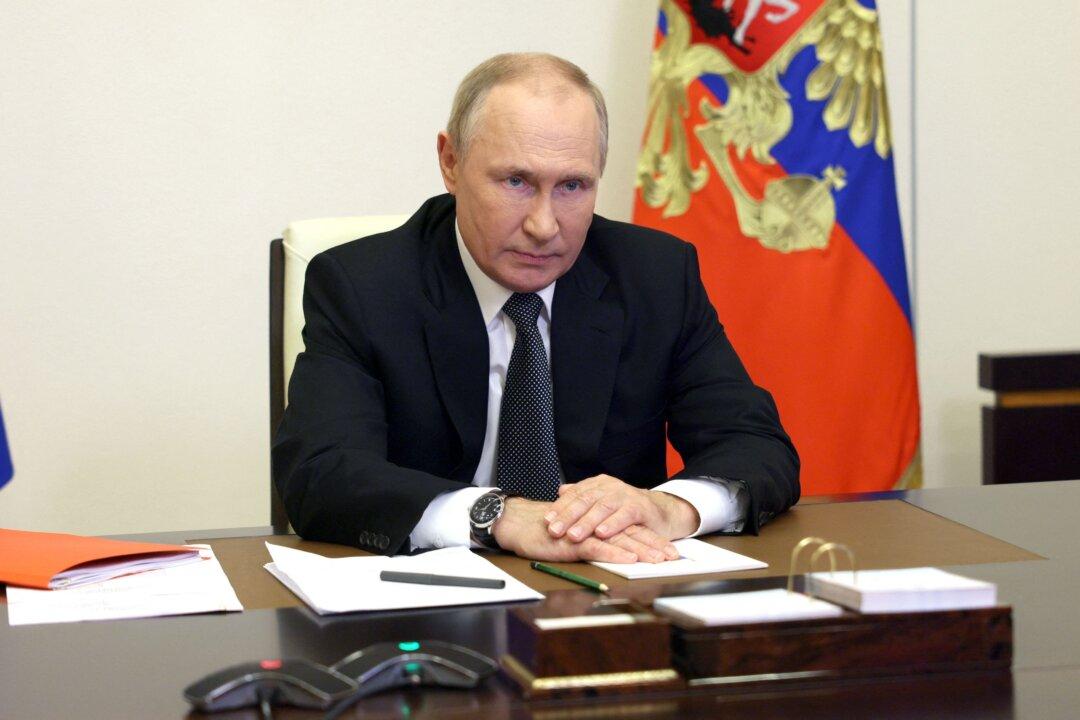KYIV/MIKOLAIV, Ukraine—President Vladimir Putin introduced martial law on Wednesday in four Ukrainian regions he says are part of Russia as some residents of the Russian-held city of Kherson left by boat after Moscow warned of a looming assault.
The images of people fleeing Kherson were broadcast by Russian state TV which portrayed the exodus— from the right bank of the Rover Dnipro to its left bank—as an attempt to clear the city of civilians before it became a combat zone.





